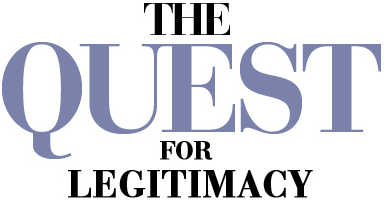Ever found yourself on the threshold, about to step into a new phase of life? That’s what we call ‘liminality’. It’s that powerful in-between space where old norms are left behind and fresh possibilities lie ahead.
Sitting at the precipice, it’s a thrilling yet daunting experience – like being ready to bungee jump off a cliff.
We’ll dive deep into this intriguing concept as seen through different lenses – from cultural anthropology to psychology. We’re going beyond theory too! By understanding liminality better, you can harness its transformative power in your own life.
Ready to explore those uncharted territories between here and there? Let’s get started!
Liminality in Cultural Anthropology
Imagine being caught between two worlds, neither here nor there. This feeling of ambiguity and disorientation is what cultural anthropologists refer to as liminality. In the world of prominent families, this concept takes on a new layer of complexity.
Picture yourself as part of a well-known family. You are constantly balancing on the threshold, wavering between your public persona and private identity. Herein lies an interesting intersection where liminality meets cultural anthropology.
The Power Dynamics within Prominent Families
Prominent families often have their own culture and set rules – traditions that are passed down through generations. The members exist in a constant state of transition; moving from who they’re expected to be towards who they want to become. Anthropological studies help us understand these dynamics better.
This formative process can lead individuals into uncharted territories where norms get questioned or redefined. It’s like crossing an invisible bridge with no clear view of what lies ahead but knowing you cannot turn back either.
A Unique Struggle: Self-Identity Vs. Family Legacy

In every person’s life journey, finding one’s true self is a crucial yet challenging task. A framework in psychology sheds light on this struggle for legitimacy especially amongst those born into prominence.
Finding personal meaning while preserving family legacy is akin to walking a tightrope – it requires skillful balancing and a strong sense of self. It’s an exciting, albeit daunting, adventure where liminality plays the lead role.
Embracing Liminality: A Path to Authentic Self
For those born into prominence, embracing their state of ‘betwixt and between’ could be empowering. It offers them an opportunity to explore uncharted territories within themselves and their family narratives. Turner’s Ritual Process theory, a pivotal work in cultural anthropology, suggests that periods of liminality can foster creativity and innovation.
Seeing it this way, liminality isn’t just a passing stage. It’s an integral part of the journey itself.
Key Takeaway:
Imagine feeling stuck between two worlds – that’s liminality. For those from prominent families, it’s a tightrope walk balancing public persona and private identity. It’s tough but embracing this ‘in-between’ state can spark creativity and self-discovery. Remember, the journey matters as much as the destination.
Psychological Perspective on Liminality
The human mind, a fascinating labyrinth of thoughts and emotions, reacts intriguingly to the concept of liminality. Much like the tip-toeing ambiguity in psychology itself, liminality resides in the shadowy realms between defined states.
In essence, it’s akin to standing at an airport terminal; you’ve left home but haven’t arrived at your destination yet. The narrative starts here.
The Influence of Liminal Spaces
Liminal spaces act as catalysts for psychological growth. They compel us to question norms and navigate uncertainty with resilience. Studies suggest that these periods of transition can be nerve-wracking but also incredibly enlightening because they offer unique perspectives we might otherwise miss.
We see this phenomenon play out quite vividly when one grows up within a prominent family.
Coping Mechanisms during Liminal Periods
A significant aspect of understanding liminality from a psychological viewpoint involves exploring coping mechanisms used during such times. Research shows that some people tend towards introspection while others may seek solace in external activities or relationships to anchor themselves amidst shifting sands.
Liminality: A Quest for Identity

This ‘in-between’ state often ignites a quest for identity. Growing up in a prominent family, the expectation to fit into predefined roles can add an extra layer of complexity to this journey.
However, as the saying goes, “Not all those who wander are lost.” It’s through these journeys that one gets to sculpt their own identity – chiseling away at preconceived notions and expectations. The product is usually an authentic self not tied down by societal norms or familial legacies but shaped by personal experiences and perspectives.
Key Takeaway:
These periods of transition, the liminal times, undoubtedly stir us up. They can be unsettling but also ignite personal growth and fresh perspectives. Some find solace within themselves during these uncertain times; others seek external anchors to hold on to for stability. Regardless of how we navigate through them, one thing is certain – these liminal phases play a pivotal role in our lives.
Theoretical Frameworks Surrounding Liminality
When discussing liminality, it’s crucial to consider its theoretical underpinnings. These frameworks help us grasp the complexities of this concept and shed light on how it shapes our understanding of transitional states.
Liminality finds its roots in anthropology, where Victor Turner‘s work played a pivotal role. He saw liminality as an intermediary phase within rites of passage – a threshold state between what was and what is yet to be. This idea not only applies to cultural rituals but also resonates with those raised in prominent families, who often find themselves navigating their own thresholds.
Anthropological Perspective
In his anthropological studies, Turner identified three phases: separation, liminality (the transition), and aggregation (re-assimilation into society). Growing up in influential families can mirror these stages – you separate from familial expectations, traverse the uncharted territory of defining your identity (liminal stage), and then reintegrate into your family or society with newfound legitimacy.
Psychosocial Interpretation
Moving beyond anthropology, psychologists interpret liminality differently. They view it as a psychosocial process that occurs when individuals confront life transitions without clear rules or norms to guide them — akin to growing up amidst wealth and influence but feeling lost nonetheless because there’s no blueprint for self-discovery amidst privilege.
Key Takeaway:
Exploring liminality’s theoretical foundations lets us better grasp this complex concept and its impact on transitional states. From anthropology to psychology, these frameworks reveal how liminality mirrors rites of passage, acts as a guide in life transitions without clear norms, and disrupts power dynamics. They are particularly relevant when considering the journey towards legitimacy for those born into influential families.
Sociopolitical Implications of Liminality
Stepping into the realm of liminality, one finds themselves in a unique sociopolitical space. This threshold state, suspended between past and future, carries with it an air of uncertainty but also potential for growth.
In this zone, conventional power dynamics get shaken up. Those who usually wield control may find their authority diminished as they too grapple with transition. Conversely, those often marginalized might discover new opportunities to voice out their opinions and effect change.
Liminality Shapes Societal Structures
The shifting landscape created by liminal periods can lead societies towards reevaluation or reconstruction of societal structures — something akin to what we’ve seen in major historical events such as revolutions or large-scale social movements.
In more localized settings like families undergoing generational transitions, it can stir discussions around inheritance rights or succession planning – topics often glossed over until crisis strikes but are crucial for maintaining harmony among members involved.
Liminal Spaces Influence Group Identities
A shared experience through a transitional phase can foster stronger bonds among individuals leading them towards forming distinct group identities based on common struggles and aspirations – think college freshmen navigating their first year or employees during a company merger.
In the case of families, their collective experience navigating through familial changes may help them redefine what it means to be part of that family, and in turn, strengthen their sense of belonging. So while liminality can initially bring about confusion and discomfort, its sociopolitical implications should not be underestimated – it is an agent for change and potential growth after all.
Key Takeaway:
Stepping into liminality’s threshold state, we find ourselves in a space ripe with uncertainty and growth potential. It shakes up conventional power dynamics, giving voice to the marginalized and questioning authority. Liminality can drive societal change – from revolutions to family discussions about succession planning. Moreover, shared transitional experiences foster stronger bonds among individuals, helping redefine group identities.
FAQs
What is liminality?
Liminality pops up in many areas, like teens becoming adults or a wedding ceremony. It’s about transitioning from one phase to another.
What is the feeling of liminality?
The sensation of liminality often feels like being suspended between two states. You’re not here nor there but somewhere floating in between.
What is a synonym for the word liminal?
“Threshold” and “transitional” are synonyms for “liminal.” They all refer to being on the edge, at the start of change.
Conclusion
Liminality is no longer a mystery…
Now, you grasp its role in cultural anthropology, seeing it as the glue between societal norms and traditions.
You’ve peered into the human mind to understand how liminality shapes our thoughts and actions.
Theoretical frameworks aren’t abstract anymore. They give us a solid ground to interpret transitional states across disciplines.
Sociopolitical implications of liminality have been unraveled. It’s clear how power dynamics shift during these crucial transition periods.
The interdisciplinary nature of liminality? You’ve seen that too. This concept transcends boundaries providing deeper insight into life’s transitions.
So take this newfound knowledge… Use it as your compass while navigating through those uncertain ‘in-between’ moments in your own journey!
Guiding the Rising Generation of prominent families
The Quest for Legitimacy is a groundbreaking model for successfully navigating the unique struggle of growing up in a prominent family
Do you feel called to explore greater purpose, identity, and personal contribution as a member of a storied family? The Quest for Legitimacy is for you. Order your copy here and start the quest.

